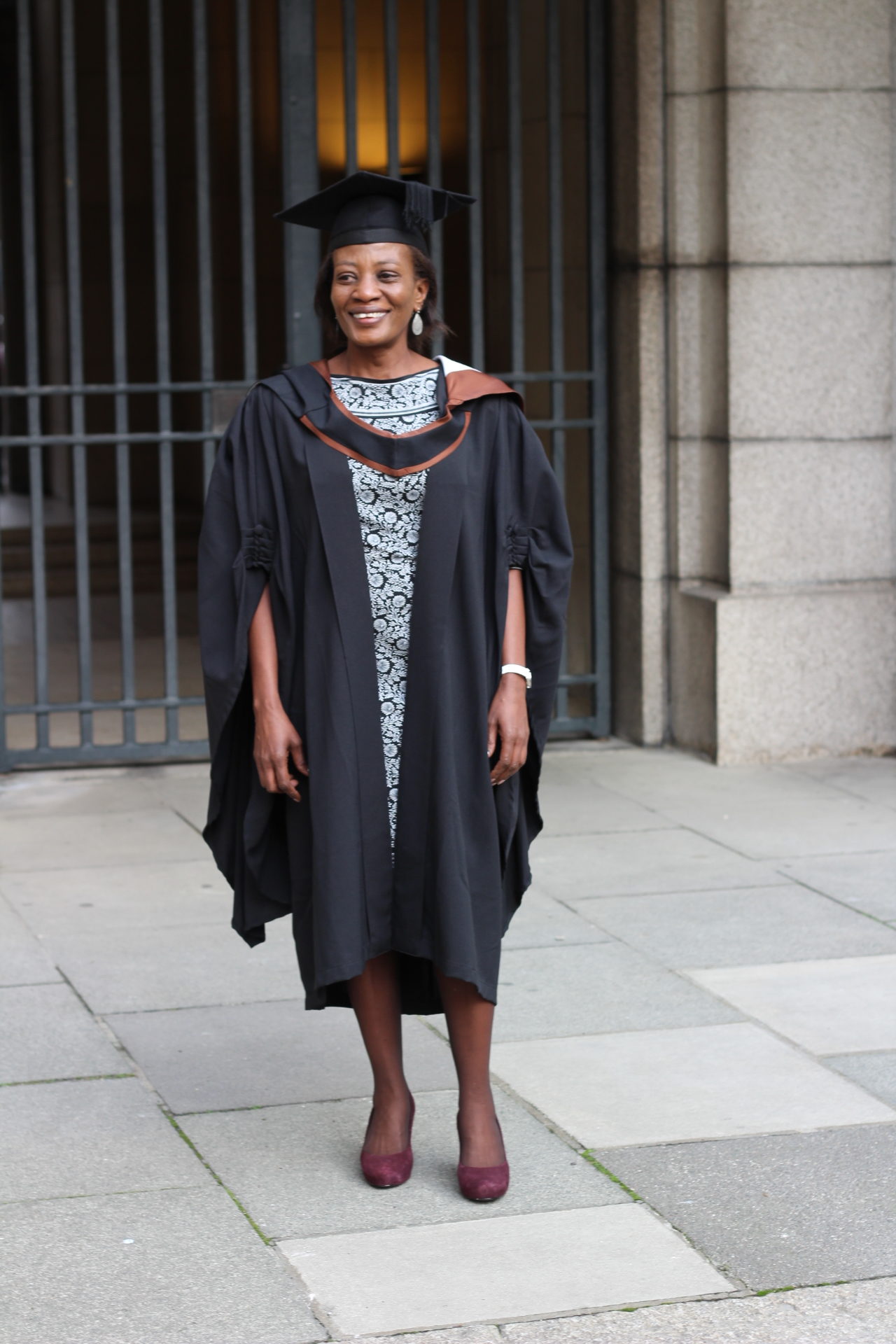Esther became homeless when family tragedy and funeral expenses meant she couldn’t afford her rent. However, she was determined to graduate from her BA Creative Writing and English programme at Birkbeck, writing assignments on trains, buses and a night shelter. Today she achieves that remarkable feat.

Growing up in Kenya, Esther Wangui’s passion for literature was carved through Sunday School, where she studied the Hebrew scriptures, and weekly cinema trips, where she developed an interest in script-writing. When she came to Birkbeck to study Creative Writing and English she became interested in form, critical creative writing, and unpicking literature with her classmates in seminars.
However family tragedy struck when her step-son died by suicide in the first year of her degree. The funeral expenses meant she was unable to pay her rent, and she was evicted by her landlord after falling into a month of arrears.
She says: “Homelessness is not something one can share easily, so I didn’t tell my friends or fellow students. Staff at the shelter were very supportive, cheering me on. And although my class tutor did not know I was homeless, he was always very supportive.
“It was difficult at first. I felt stupid, ashamed, and angry at myself. I was staying at a night shelter in Kingston, so I had no privacy, nowhere to cry, no friends to share the downs with… I just kept moving towards the end of my degree. I come from a small town in Kenya which is home to numerous world-class athletes. I used to compete for my high school so I know to always keep my eye on the finishing line.
“The greatest challenge was being woken up early every morning, having to leave the shelter at 10:00am and returning in the evening, cold and tired. I craved what Virginia Woolf called a ‘room of one’s own’. While I was homeless, I even ‘slept’ at the airport several times, but mainly I read or wrote poetry. I was constantly lacking sleep and at times, fatigue affected my concentration. I thought of doctors and world leaders dealing with huge problems and was inspired to carry on, but I envied them for having a bed to go back home to. I could not afford to call my family in Kenya to share my problems. I prayed, I learned from others, and I thought about the fact that I had waited all my life to go to university. It was such a privilege to get an education at Birkbeck.
“I wrote most of my assignments on the long train and bus journeys, and on weekends I worked from the Kingston University library, watching the winter turn to spring and then to summer. I envisioned the day I could at last say, ‘I held on, I tried my best. I graduated from university.’”
Now back in secure accommodation and excited for her future, Esther has started a Master’s degree focused on Near & Middle Eastern studies and Hebrew. She hopes to one day learn all four of the main Middle Eastern languages and go on to work in that region.

